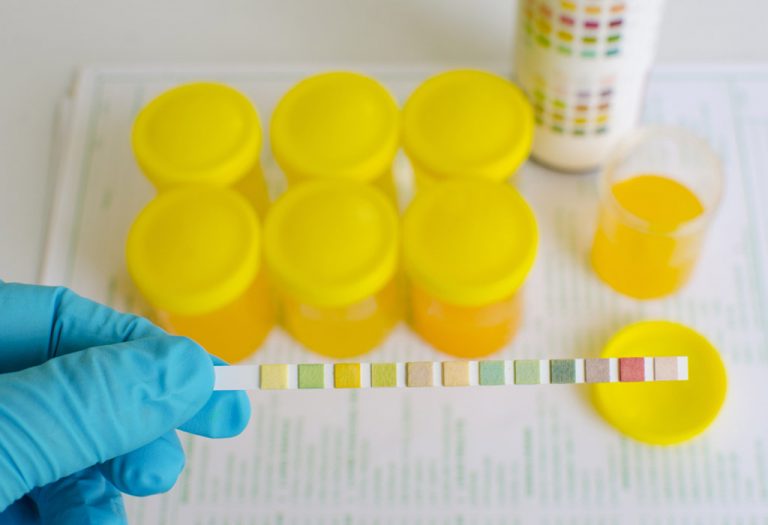Metabolic Changes During Pregnancy – Can Pregnancy Boost Your Metabolism?
Pregnant women practically eat for two, leading many to wonder whether pregnancy boosts their metabolism or if these are simply food cravings. The growth of the baby puts significant demands on the woman’s body for energy and nutrition, resulting in various physiological adaptations. During this time, metabolic changes during pregnancy play a crucial role in ensuring that both mother and baby receive the necessary nutrients. It is quite natural for the metabolism rate to be higher than usual due to these changes, which can be understood better from the following. Understanding these changes can help women manage their dietary needs and energy levels more effectively throughout their pregnancy.
Does Metabolism Speed Up During Pregnancy?
Pregnancy comes along with massive changes in the body of a woman. Irrespective of whether they are physical or biological, these changes can put the body in a completely different mode as it prepares itself to fuel and take care of another living being. This can usually boost the metabolism of the woman since it starts producing more energy and resources that would be required by the growing foetus. As the baby grows, the demands keep increasing, and the metabolism can shift accordingly.
Prenatal Basal Metabolic Rate (BMR)
The metabolic rate during pregnancy is one of the primary metrics that determine the increase in the metabolism of a pregnant woman. The prenatal basal rate of metabolism would be marginally lower than what it would be during pregnancy, as well as in different stages of the pregnancy. The type of diet and nutrition demands that a woman’s body had before pregnancy governs the basal metabolism, determining her energy needs. However, the presence of the foetus and the size of it is what defines how much more the rate would increase. Mothers that have a large foetus or multiple babies need more energy to sustain them, leading to a high BMR and ending with faster consumption of energy and nutrition.
How Does Pregnancy Weight Gain Impact Metabolism?
Irrespective of whether you are underweight, obese or at a healthy weight before pregnancy, your total body weight will increase during the entire course of pregnancy. Some of it would be your weight gain, while the rest would be the weight gained by the foetus.
- A key factor to take into account while tracking your weight gain is BMI, or body mass index. This can pretty well govern how much weight you need to increase to keep your pregnancy healthy
- Women with a higher BMI, which ranges above 25 or so, ought to gain weight in the range of 5 to 11 kgs.
- Women with a median BMI, which ranges from 18.5 to 25, are expected to gain about 11 to 15.8 kg in weight.
- Women with BMI on the lower end of the scale, falling short of 18.5, need to gain a lot of weight, which is somewhere close to 12.7 to 18 kgs.
- Your weight gain depends strongly on your diet and your metabolism. Therefore, you might have to make changes to your diet if your weight gain seems lower, which is indicative of a high metabolic rate.
How Do Your Calorie Needs During Pregnancy Affect Metabolism?
Metabolism in pregnancy shifts quite a lot from the usual standard. This strongly affects the calorie needs of the body.
- Each trimester has its very own calorific demands, given the fact that a baby grows differently in each of those. On a general note, most pregnant women require about 2.2 to 3 kilocalories on a daily basis.
- The first trimester is quite crucial in this regard since excessive calories can cause unhealthy weight gain and lesser calories can affect the development of the child. Most women who have a healthy weight at the initial stage of the pregnancy can continue with their usual calorie intake in the beginning.
- As your pregnancy progresses, your daily calorie intake needs to be ramped up by around 350 calories in the second trimester and 460 calories in the final one.
How to Meet Your Calorie Needs
Higher calorie needs should always be met with a diet that is healthy and balanced on all fronts. Calories need to be balanced with nutrition. Therefore consuming a diet rich in dairy, lean meat, vegetables, fruits and whole grains is advised.
FAQs
1. How do metabolic changes during pregnancy impact the body’s ability to process certain foods?
During pregnancy, hormonal shifts can alter how the body metabolizes specific nutrients, leading to changes in food tolerance. For instance, some women may develop aversions to foods they previously enjoyed or find it challenging to digest certain carbohydrates, which can affect their overall dietary choices.
2. Can metabolic changes during pregnancy lead to changes in body odour or taste preferences?
Yes, hormonal and metabolic changes in pregnancy can influence body odour and taste preferences. Some women report a heightened sense of smell and changes in their taste preferences, which may cause cravings for unusual food combinations or aversions to previously liked foods. This phenomenon is linked to the body’s adaptive mechanisms during pregnancy.
This was all about metabolism and pregnancy. Metabolism during pregnancy first trimester, second and even third trimesters undergo changes. Opting for a fast metabolism diet during pregnancy might be necessary if your weight is on the lower side and your foetal demands are high. Talking to your doctor and dietician to help you plan your food intake is highly recommended.
References/Resources:
1. Lain. K, Catalano. P; Metabolic changes in pregnancy (Clinical Obstetrics and Gynecology); National Library of Medicine; https://pubmed.ncbi.nlm.nih.gov/17982337/; December 2007
2. Parrettini. S, Caroli. A, Torlone. E; Nutrition and Metabolic Adaptations in Physiological and Complicated Pregnancy: Focus on Obesity and Gestational Diabetes (Frontiers in Endocrinology); National Library of Medicine; https://www.ncbi.nlm.nih.gov/pmc/articles/PMC7793966/; November 2020
3. Metabolic changes in pregnancy in the normal events of pregnancy; Britannica; https://www.britannica.com/science/pregnancy/Metabolic-changes
4. Wang. Q, Würtz. P, Auro. K, Mäkinen. V, Kangas. A, Soininen. P, et al.; Metabolic profiling of pregnancy: cross-sectional and longitudinal evidence; BMC Medicine; https://bmcmedicine.biomedcentral.com/articles/10.1186/s12916-016-0733-0; December 2016
5. Metabolic Changes During Human Pregnancy; Endocrine Society; https://www.endocrine.org/journals/endocrinology/metabolic-changes-during-human-pregnancy
6. King. J; Physiology of pregnancy and nutrient metabolism (The American Journal of Clinical Nutrition); Science Direct; https://www.sciencedirect.com/science/article/pii/S0002916523071484; May 2000
7. Butte. N; Carbohydrate and lipid metabolism in pregnancy: normal compared with gestational diabetes mellitus (The American Journal of Clinical Nutrition); Science Direct; https://www.sciencedirect.com/science/article/pii/S0002916523071538; May 2000
Also Read:
Skin Changes while Pregnant
Does Your Voice Change when Pregnant?
Body Changes during Pregnancy – Week By Week
Emotional and Psychological Changes in Pregnancy
Was This Article Helpful?
Parenting is a huge responsibility, for you as a caregiver, but also for us as a parenting content platform. We understand that and take our responsibility of creating credible content seriously. FirstCry Parenting articles are written and published only after extensive research using factually sound references to deliver quality content that is accurate, validated by experts, and completely reliable. To understand how we go about creating content that is credible, read our editorial policy here.



































